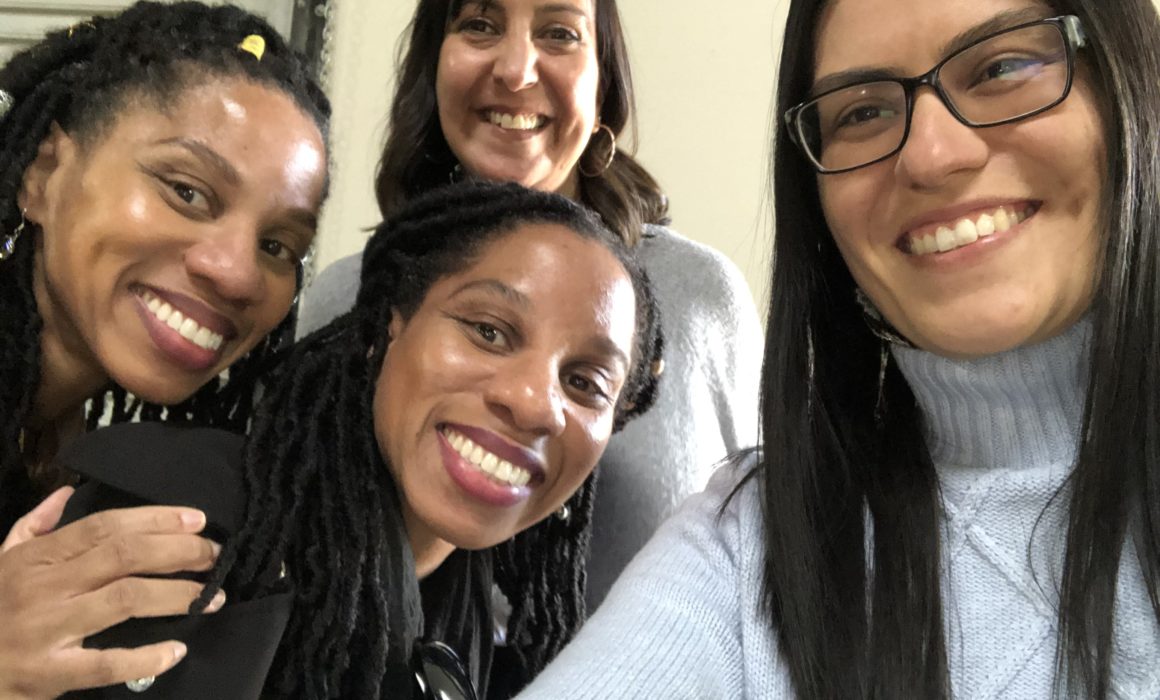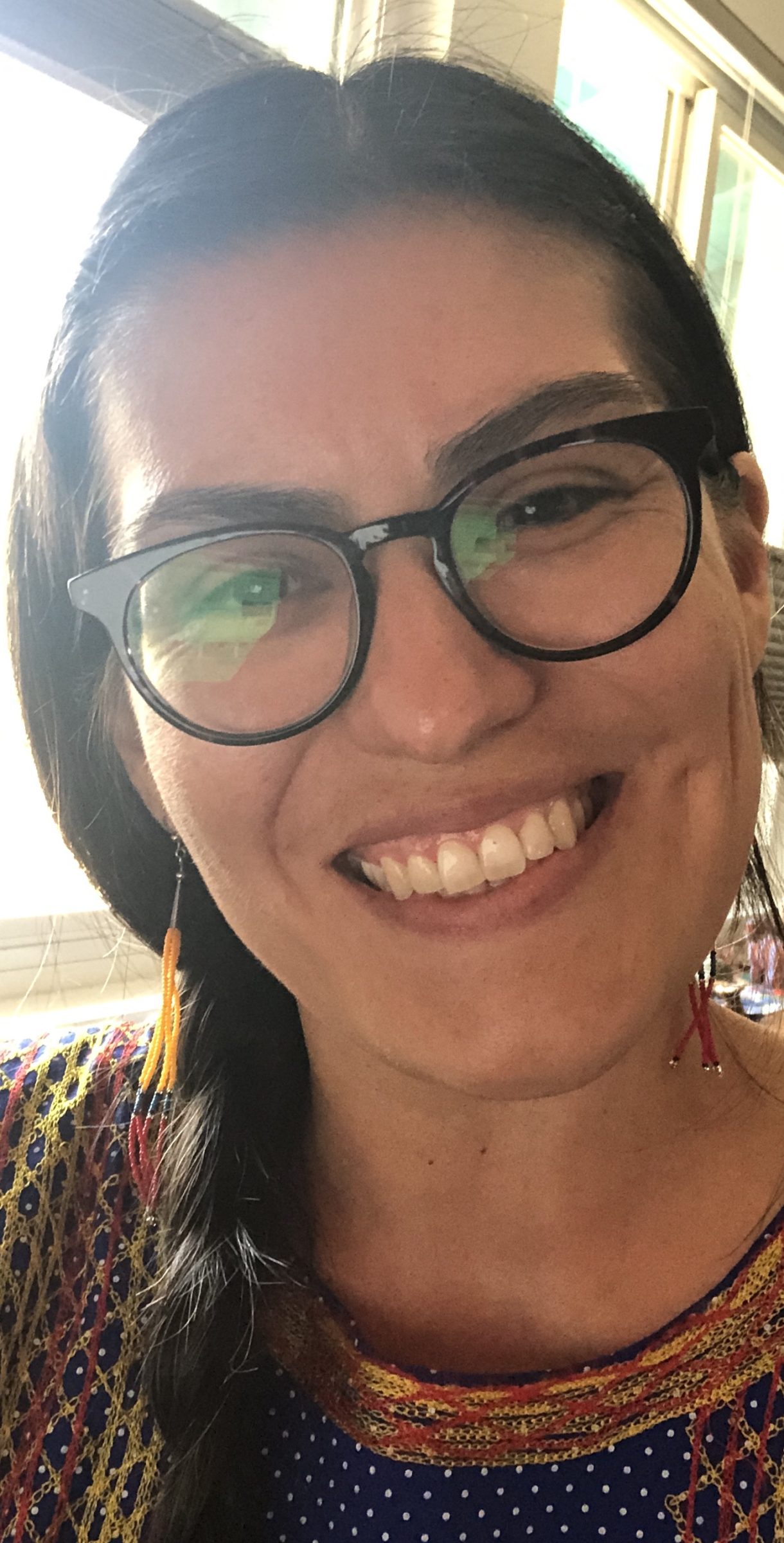
Photo: Jennifer Escobar, right, with fellow oral history project teachers Karyn Thomas, Angelena Tavares and Kimberly Thomas.
Jennifer Escobar was raised in a family with a rich tradition of storytelling that helped her understand her Chicanx heritage. It was a way to pass on customs and knowledge from one generation to the next.
Her mother shared stories of growing up in Texas, where she was punished for speaking Spanish at school. Later, she went back to school and became a teacher. She told her daughter to be proud of who she was, fight against discrimination, and value education. Her stories reminded Escobar to be strong when she felt like an outsider attending UC Riverside in the 1990s, which had few students of color at the time and seldom assigned literature from Chicanx authors and those from other historically marginalized backgrounds.

Jennifer Escobar
The community college educator and former high school teacher wanted her own students to hear the same kinds of inspiring stories from family, friends and community members. So in 2017, she created an oral history project for college students to interview others and create narratives of their own.
“I believe that oral history is a wonderful way to engage students in meaningful learning,” relates Escobar, an associate professor of English at Moreno Valley College and member of the Riverside Community College District Faculty Association. “It’s a way for students to tap into their own network, family and friends. It is a way to introduce researching and interviewing, and to understand how events like immigration, racism and other challenges make people who they are today.”
She also believes it can give agency to marginalized communities, as she said when she received a 2017-18 fellowship: “Oral history storytelling has the potential to highlight experiences of people and communities who are misrepresented and underrepresented in order to effect change and promote equity and social justice.”
That same year, Escobar broadened her scope and asked a handful of secondary and postsecondary educators in Perris and Moreno Valley to join her work, focused on the Inland Empire.
In 2019, Escobar and four fellow teachers were awarded an $18,480 grant from CTA’s Institute for Teaching that allowed 20 classroom teachers in middle school through college to participate in the “Researching Our Communities Through Oral Histories” project. It continues this school year with an IFT grant of $7,455. Participating teachers and students are from the community college district and Moreno Valley Unified and Val Verde Unified school districts.
Angelena Tavares, an eighth grade language arts teacher at Mountain View Middle School in Moreno Valley who has participated in the project since the beginning, says that interviewing family members was an excellent way for her English learners to practice reading, writing, listening and speaking skills.
“Many learn about the struggles of their families who came from other countries,” says the Moreno Valley Educators Association member. “They learn why their parents value education so much; about their parents’ strong work ethic; even how their parents met. They are learning a new respect and appreciation for their own families.”
Oral histories can take the form of written essays, photo essays, artwork, poems and videos. Students are encouraged to convert what they learn into “positive action” for social justice, equity and acceptance in their communities.
Plans to share student projects at a community event last spring were halted by the pandemic. Instead, they can be viewed at oralhistoryie.com. The stories are compelling: They include a young woman diagnosed at age 19 with vertigo, and a gay man who was outed to his family.
One of Escobar’s students, Josue Sanchez, interviewed his fiancé, who grew up in a religious home, married, divorced his wife and started dating men.
“Too often, we have superficial conversations with the people that we are close to,” says Sanchez. “An oral history allows someone to share their story in a very powerful way that touches other people.”
Students learn how to ask questions, write narratives, and listen to others. Interviewees feel validated and sometimes unburdened to share stories of the past.
“Sometimes there is sadness in sharing these stories, and sometimes there is great joy,” says Escobar. “But one thing is certain: The experience is life-changing.”